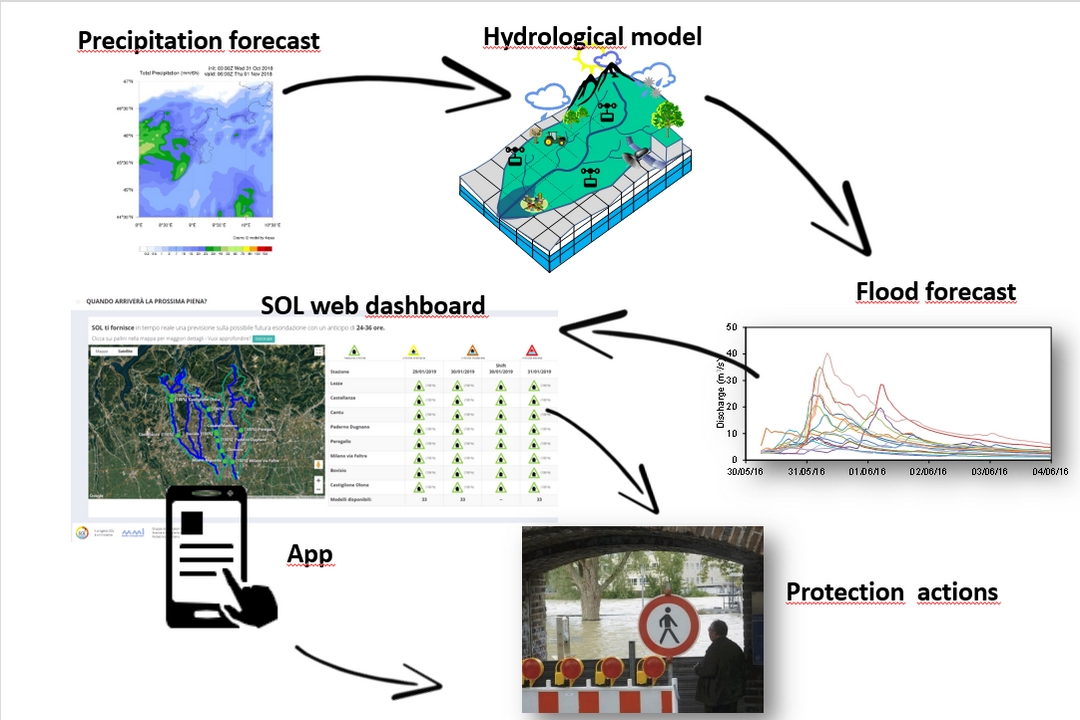Questa linea di ricerca contribuisce all’area di ricerca chiave del Dipartimento SISTEMI NATURALI, AMBIENTE E TERRITORIO: Rischio geologico e idro-geologico. Questo settore di ricerca sviluppa le attività previste dalla direttiva europea 2007/60, secondo un’esperienza storica nel campo dell’idrologia fisica e probabilistica, degli estremi idrologici e della protezione civile, nell’ottica di adattamento ai cambiamenti climatici. Le attività condotte si concentrano sullo studio:
i) dei rischi derivanti da fenomeni di alluvione,
ii) dell’esposizione ai danni e la relativa vulnerabilità delle persone, delle infrastrutture urbane e dei sistemi di produzione,
iii) della gestione del rischio e la mitigazione attraverso la sinergia di strutture e non strutturali Interventi.
In particolare, vengono sviluppati i seguenti argomenti:
- analisi probabilistica uni/multivariata degli estremi idrologici per la progettazione di opere e impianti idraulici;
- aree di inondazione e valutazione dei danni: procedure di modellazione idraulico- idrologica ed uso di dati satellitari;
- monitoraggio sul campo, attraverso lo sviluppo di metodi per l’osservazione diretta del processo, comprese tecniche innovative per la misurazione e l’assimilazione dei dati di telerilevamento, satellitari, radar meteorologico, lidar e dati a terra;
- modelli per la valutazione dell’impatto della forzante climatica e antropogenica sul rischio idrogeologico a diverse scale spaziali;
- modelli per la previsione, lo sviluppo, la calibrazione e la validazione di algoritmi di simulazione in tempo reale per le procedure di previsione, allerta e allarme;
- modellazione matematica di alluvioni lampo, colate di detrito, fuoco, frane superficiali, detriti arborei;
- forzanti climatiche ed antropogeniche, effetti sul rischio residuo di dighe, strutture di contenimento fluviale, aree di laminazione delle inondazioni;
- lo sviluppo delle attività di gestione del rischio idraulico ai sensi della direttiva europea 2007/60;
- previsioni di inondazione in tempo reale con modelli meteorologici idraulici e assimilazione dei dati satellitari;
- gestione integrata del rischio basata sulla pianificazione territoriale e sulle norme di protezione civile; progettazione di sistemi di mitigazione strutturale e non strutturale, analisi dei costi-benefici.

